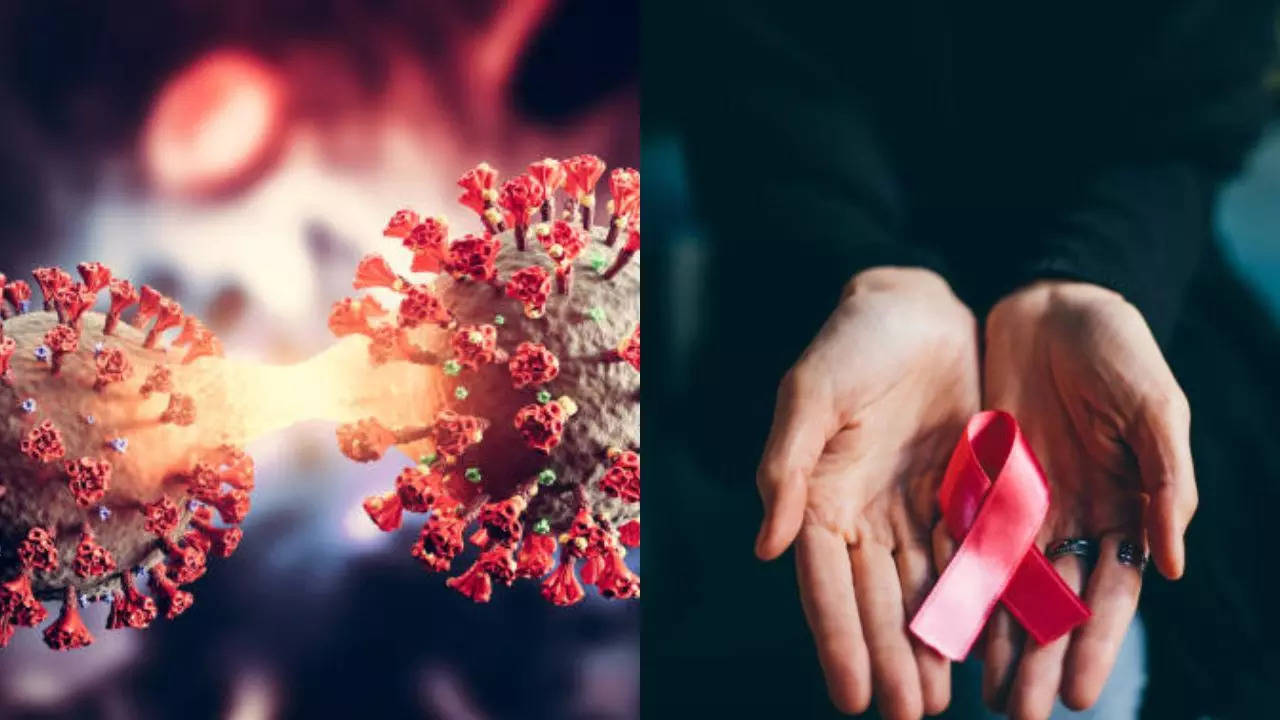Contents
-
news
-
Health
Covid-19 can cure cancer! No, you didn’t read that wrong; This way
In a significant development, US scientists have found that cells activated by severe COVID-19 infection can be induced by a drug to fight cancer and slow its progression. According to research published in The Journal of Clinical Investigation, COVID-19 RNA prompts monocytes to develop cancer-fighting properties, potentially shrinking tumors in some metastatic cancers. Read on to know more.

The SARS-CoV-2 virus responsible for the disease triggers the development of a special cell in the immune system that has anti-cancer properties
In a significant finding, scientists have discovered an incredible link between COVID-19 infection and cancer regression – where tumors significantly reduce in size or extent. Researchers at Illinois used animal and human tissues to see how RNA molecules of the SARS-CoV-2 virus responsible for the disease triggered the growth of a special cell in the immune system that has anti-cancer properties.
Also known as inducible nonclassical monocytes or I-NCMs – these special cells attack cancer cells and can be used to treat cancers that are resistant to current treatments.
Researchers at Northwestern Medicine’s Canning Thoracic Institute who made the discovery say the current study could open the way for more research on cancer. Dr Ankit Bharat, head of thoracic surgery at the Canning Thoracic Institute, said: “This discovery has opened up a new avenue for cancer treatment.” He said, “We found that the same cells activated by severe COVID-19 could be induced by the drug to fight cancer, and we specifically looked at melanoma, lung, breast and stomach cancer in the study.” “Saw a reaction with cancer.”
So far, effectiveness has been found only in animals
The study, published in The Journal of Clinical InvestigationStill in its early stages, its effectiveness has so far only been found in animals. However, it does offer hope that we may be able to use this approach to benefit patients with advanced cancer who have not responded to other treatments, Dr. Bharat said.
According to scientists, specialized cells can be further developed using small molecules, which could pave a new way for cancer patients who have exhausted traditional treatment methods.
“What makes these cells so special is their dual capacity,” Dr. Bharat said. “Normally, immune cells called non-classical monocytes patrol blood vessels looking for threats. But they cannot enter the tumor site due to the lack of specific receptors,” he said.
Severe COVID-19 can kill tumors
Scientists say the cells created during severe COVID-19 retain a unique receptor called CCR2 – which allows them to travel beyond blood vessels and infiltrate the tumor environment. Once they enter the tumor, these cells begin to release certain chemicals that can recruit your body’s natural killer cells. These cells then take over the tumor and begin attacking the cancer cells directly – helping the tumor shrink.
According to Dr. Bharat, further research remains to be done before the findings of this study can be used in clinical settings and this is likely to take several years. The next step will be clinical trials.
Cancer is a disease in which certain cells of the body grow uncontrollably and spread to other parts of the body. Some types of cancer have better survival rates than others.
Since the beginning of this year, an estimated 611,720 people in the U.S. are expected to lose their battle against cancer. According to statistics, lung cancer is responsible for most of these deaths.
Get the latest news live on Times Now with breaking news and top headlines from around the world.


